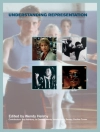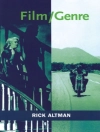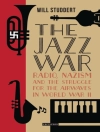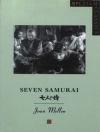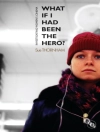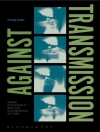A Companion to François Truffaut
‘An unprecedented critical tribute to the director who, in France, wound up becoming the most controversial figure of the New Wave he helped found.’
Raymond Bellour, Centre National de la Recherche Scientifique
‘This exciting collection breaks through the widely held critical view that Truffaut abandoned the iconoclasm of his early work for an academicism he had consistently railed against in his own film criticism. Indeed, if ‘fever’ and ‘fire’ were Truffaut’s most consistent motifs, the essays in this collection live up to his lifelong, burning passion for the cinema. Written by world-famous scholars, the essays exhaustively explore the themes and styles of the films, as well as Truffaut’s relationships to André Bazin, Alfred Hitchcock, and the directors of the New Wave, his ground-breaking and controversial film criticism, and his position in the complex politics of French cultural life from the Popular Front to 1968 and after.’
Angelo Restivo, Georgia State University
Although the New Wave, one of the most influential aesthetic revolutions in the history of cinema, might not have existed without him, François Truffaut has largely been ignored by film scholars since his death almost thirty years ago. As an innovative theoretician, an influential critic, and a celebrated filmmaker, Truffaut formulated, disseminated, and illustrated the ideals of the New Wave with exceptional energy and distinction. Yet no book in recent years has focused on Truffaut’s value, and his overall contribution to cinema deserves to be redefined not only to reinstate him in his proper place but to let us rethink how cinema developed during his lifetime.
In this new Companion, thirty-four original essays by leading film scholars offer new readings of individual films and original perspectives on the filmmaker’s background, influences, and consequence. Hugely influential around the globe, Truffaut is assessed by international contributors who delve into the unique quality of his narratives and establish the depth of his distinctively styled work.
An extended interview with French filmmaker Arnaud Desplechin tracks Truffaut’s controversial stature within French cinema and vividly identifies how he thinks and works as a director, adding an irreplaceable perspective to this essential volume.
Зміст
Acknowledgments viii
Notes on Contributors ix
Preface xv
Filmography xxiii
Part I La Planète Truffaut 1
1. Interview with Arnaud Desplechin, Part I: Truffaut and His
Position 3
Anne Gillain and Dudley Andrew
2. Truffaut and His ‘Doubles’ 23
Martin Lefebvre
3. Aesthetic Affinities: François Truffaut, Patrick
Modiano, Douglas Sirk 71
Anne Gillain
4. Interview with Arnaud Desplechin, Part II: Truffaut and His
Methods 105
Anne Gillain and Dudley Andrew
Part II Style and Sensibility 125
5. Flashes of Happiness 127
Alain Bergala
6. Truffaut and the Photographic: Cinema, Fetishism, Death
137
Junji Hori
7. The Impasse of Intimacy: Romance and Tragedy in
Truffaut’s Cinema 153
John Orr
8. A Fine Madness: Digressions on Pathologies in
Truffaut’s Films 173
Francis Vanoye
9. The Ecstatic Pan 184
Phil Powrie
10. The Untimely Moment and the Correct Distance 205
Adrian Martin
Part III The Making of a Filmmaker 219
11. Every Teacher Needs a Truant: Bazin and L’Enfant
sauvage 221
Dudley Andrew
12. Certain Tendencies of Truffaut’s Film Criticism
242
Richard Neupert
13. Truffaut-Hitchcock 265
Jonathan Everett Haynes
14. The Paradox of ‘Familiarity’: Truffaut, Heir of
Renoir 283
Ludovic Cortade
15. Cain and Abel: Godard and Truffaut 300
Michel Marie
16. Friction, Failure, and Fire: Truffaut as Adaptive Auteur
317
Timothy Corrigan
Part IV Truffaut and His Time 333
17. Growing Up with the French New Wave 335
James Tweedie
18. Bad Objects: Truffaut’s Radicalism 356
Sam Di Iorio
19. Between Renoir and Hitchcock: The Paradox of
Truffaut’s Women 375
Ginette Vincendeau
20. Truffaut in the Mirror of Japan 388
Kan Nozaki
Part V Films 401
21. Directing Children: The Double Meaning of Self-Consciousness
403
Angela Dalle Vacche
22. Jules et Jim … et Walter Benjamin 420
Dudley Andrew
23. Digging Up the Past: Jules et Jim 434
Elizabeth Ezra
24. The Elevator and the Telephone: On Urgency in La Peau douce
448
Michel Chion
25. La Peau douce: A Psychogeography of Silky Cinephilia
454
Tom Conley
26. La Peau douce: François Truffaut’s Passionate
Object 469
Hilary Radner
27. An Unsettling Passage: From Les Deux Anglaises et le
continent to La Chambre verte 489
Carlos Losilla
28. The Structural Role of Intervals in L’Argent de poche
507
Alain Bergala
29. To Die or to Love: Modern Don Juans in Truffaut and Oliveira
517
Luiza Jatobá
30. Film as Literature: or the Truffaldian Malaise
(L’Homme qui aimait les femmes) 530
Lúcia Nagib
31. The Elegist: François Truffaut inside La Chambre verte
546
Philip Watts
32. La Chambre verte and the Beating Heart of Truffaut’s
Oeuvre 561
Françoise Zamour
33. Le Dernier Métro: An Underground Golden Coach 571
Jean-Michel Frodon
34. Disillusionment and Magic in La Nuit américaine and Le
Dernier Métro 584
Marc Vernet
Index 594
Про автора
Dudley Andrew is the R. Selden Rose Professor of Film and Comparative Literature at Yale University, USA. He is the author or editor of nine books, including The Major Film Theories, Popular Front Paris and the Poetics of Culture (2005), What Cinema Is! (2010), and Opening Bazin (2011), which won the SCMS Best Anthology Award for 2011.
Anne Gillain is professor emeritus at Wellesley College, USA. She is known for her work on French cinema, particularly François Truffaut, in books that include Le Cinéma selon François Truffaut (1988), Les 400 Coups (1991), and François Truffaut: The Lost Secret (2013).


